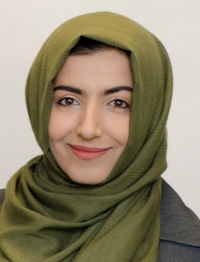Darren Owen hasn’t been a student for several years.
But the 56-year-old Scottsville, Va., farrier jumped at the chance to take his professional credentials to a new level by enrolling in the Royal Veterinary College’s (RVC) Graduate Diploma in Equine Locomotor Research (Grad Dip ELR) at the University of Pennsylvania’s New Bolton Center.
Owen explains that it is challenging to be in a higher-level academic setting after such a long time of not having this type of structure. However, he enjoys the diverse perspectives of the other students in the 14-student U.S. cohort.
“All of us have individual parts and pieces to add to this artistic and innovative profession,” says Owen. “We come at it from different ways. I think it’s exciting to have different approaches and that’s what this program allows for.”
During the course, which is taught by Renate Weller and Thilo Pfau, students explore their specific topics of curiosity and work to answer them through formalized research. The professional farriers develop a toolkit to produce original research, increase the evidence-base behind farriery, and achieve the ultimate goal of improving equine welfare.
“I just have to applaud the thought and the design that’s gone into this course to help students exactly like myself who may have been out of school for a while, or maybe for whatever reason haven’t had the opportunities to have higher learning,” says Owen. “Dr. Weller and everyone in the learning center has done an incredible job to enhance us with the online resources and have been exceptionally supportive in being able to contact them directly with any questions that our group has.”
Farriers from all over the U.S. have joined the Grad Dip ELR, making up the first U.S.-based class of the RVC’s pioneering course.
Another student is Parkesburg, Pa., farrier Daisy Bicking. She started her hoof-care practice after helping a farrier treat her horse. She now teaches at her own farriery school.
The RVC course will help Bicking get formal recognition for her skills and experience.
“There are very few avenues for farriers to do credible research and we also don’t have free access to academic information,” says Bicking. “So, being part of the program is important in getting more peer reviewed research done by qualified farriers and raising the bar for our industry in general.”
She goes on to explain the dire need for education like the RVC’s course to be provided to farriers as a means to fill a gap in hoof-care work.
“Many veterinarians do research on hoof-related issues and they often have farriers doing the hoof-care work,” says Bicking. “But they’re often not listed in the papers. We’re the ones who have the expertise because we live in that environment on a daily basis. It’s potentially limiting when only veterinarians do research on hoof-care issues. We can have a much broader range of research done if it’s available to farriers.”
The Grad Dip ELR can be taken over a minimum of 2 and a maximum of 5 years, according to an RVC press release.
The course is divided into two sections: Contemporary Study Skills and Applied Equine Locomotion. It is taught through podcasts, webinars and face-to-face learning sessions.
The module included thinking and learning at university, literature searching and academic writing skills. The students also brainstormed their blue-skies research project ideas with Weller.
“The first part of the course is all about communication and digital skills. I think, at least from the feedback I’ve gotten from the farriers who have already been through it, it doesn’t only help them to succeed in the main part of the course,” says Weller in an American Farriers Journal podcast. “The feedback was overwhelmingly positive in terms that it also help in their daily professional lives, which I think is a great sign that we’re going down the right route.”







